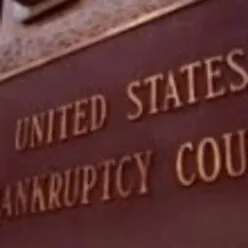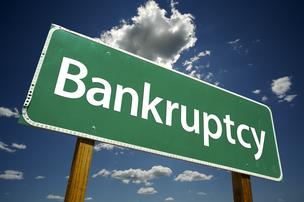Vice Media Group officially filed for Chapter 11 bankruptcy on Monday morning as the latest in a series of media layoffs, cuts and shutdowns this year². The company filed for Chapter 11 bankruptcy protection Monday to facilitate a sale of the company⁵.
Table of Contents
What is Chapter 11 Bankruptcy?
Chapter 11 bankruptcy is a reorganization bankruptcy. It is a process that allows a business or individual to reorganize its finances and continue operating. In Chapter 11, the debtor typically proposes a plan of reorganization to its creditors. The plan must be approved by the bankruptcy court. If the plan is approved, the debtor will be able to continue operating and make payments to its creditors under the terms of the plan.
There are several benefits to filing Chapter 11 bankruptcy. First, it can stop creditors from taking legal action against the debtor. Second, it can provide the debtor with time to develop a plan to repay its creditors. Third, it can allow the debtor to restructure its debts and reduce its overall debt load.
However, there are also some risks associated with filing Chapter 11 bankruptcy. First, it can be expensive. Second, it can damage the debtor’s credit rating. Third, it can be time-consuming.
If you are considering filing Chapter 11 bankruptcy, you should speak with an attorney to discuss your specific situation. An attorney can help you understand the benefits and risks of Chapter 11 bankruptcy and can help you file the necessary paperwork.
Here are some of the pros and cons of filing Chapter 11 bankruptcy:
Pros:
- Stops creditors from taking legal action
- Provides time to develop a plan to repay creditors
- Allows debtor to restructure debts and reduce overall debt load
Cons:
- Can be expensive
- Can damage credit rating
- Can be time-consuming
If you are considering filing Chapter 11 bankruptcy, you should weigh the pros and cons carefully. An attorney can help you understand your options and make the best decision for your situation.
How much time does Vice Media Have to prepare and file a Chapter 11 Plan ?
A company has 120 days from the date of filing for Chapter 11 bankruptcy to file a plan of reorganization. The court may extend this deadline for up to 180 days, but only if the company can show good cause for the extension.
If the company does not file a plan within the 120-day deadline, the court may dismiss the case. The court may also appoint a trustee to manage the company’s assets and operations.
The plan of reorganization must be approved by a majority of the company’s creditors. The plan must provide for the payment of all or a portion of the company’s debts. It may also allow the company to restructure its debts or to discharge certain debts altogether.
If the plan is approved, the company will be able to emerge from Chapter 11 bankruptcy and continue operating. However, the company will be subject to certain restrictions, such as the requirement to make payments to its creditors under the terms of the plan.
Here are some of the factors that the court will consider when deciding whether to extend the deadline for filing a Chapter 11 plan:
- The complexity of the company’s financial situation
- The progress that the company has made in developing a plan of reorganization
- The likelihood that the company will be able to emerge from Chapter 11 bankruptcy if the deadline is extended
If you are considering filing for Chapter 11 bankruptcy, you should speak with an attorney to discuss your specific situation. An attorney can help you understand the deadline for filing a plan of reorganization and can help you develop a plan that is likely to be approved by the court.
What is Next for Vice Media Bankruptcy ?
Vice Media filed for Chapter 11 bankruptcy on May 15, 2023. The company has been struggling financially for several years, and the bankruptcy filing is an attempt to restructure its debt and get back on track.
Under Chapter 11 bankruptcy, Vice Media will have 120 days to develop a plan of reorganization. The plan must be approved by a majority of the company’s creditors. If the plan is approved, Vice Media will be able to emerge from bankruptcy and continue operating.
However, the company will be subject to certain restrictions, such as the requirement to make payments to its creditors under the terms of the plan. It is also possible that Vice Media could be sold to another company as part of the bankruptcy process.
The future of Vice Media is uncertain, but the bankruptcy filing is a necessary step for the company to try to get back on track. The company has a long history of innovation and creativity, and it is possible that it will be able to emerge from bankruptcy stronger than ever before.
Here are some of the possible outcomes for Vice Media after filing for Chapter 11 bankruptcy:
- The company could emerge from bankruptcy and continue operating as a standalone business.
- The company could be sold to another company.
- The company could be liquidated, meaning that its assets would be sold off and its debts would be paid.
The outcome for Vice Media will depend on a number of factors, including the company’s financial situation, the progress it makes in developing a plan of reorganization, and the reaction of its creditors.
Source:
(1) Vice Media files for bankruptcy, latest in a series of liberal media struggles. https://www.msn.com/en-us/money/companies/vice-media-files-for-bankruptcy-latest-in-a-series-of-liberal-media-struggles/ar-AA1bdETs.
(2) Vice Media files for Chapter 11 bankruptcy protection – CNN. https://www.cnn.com/2023/05/15/media/vice-media-chapter-11-bankruptcy/index.html.
(3) Vice Media, once worth $5.7 billion, files for bankruptcy. https://www.npr.org/2023/05/15/1173260377/vice-media-bankruptcy.
(4) Vice Media files for bankruptcy: Three lenders bid for majority of company. https://www.msn.com/en-us/money/other/vice-media-files-for-bankruptcy-three-lenders-bid-for-majority-of-company/ar-AA1bcGJQ.
(5) Vice Media Bankruptcy: CNN, HBO, A&E Networks Among Creditors List. https://news.yahoo.com/vice-media-bankruptcy-cnn-hbo-205823199.html.

